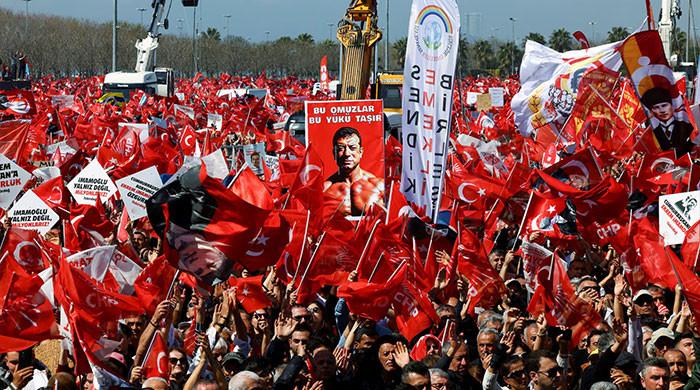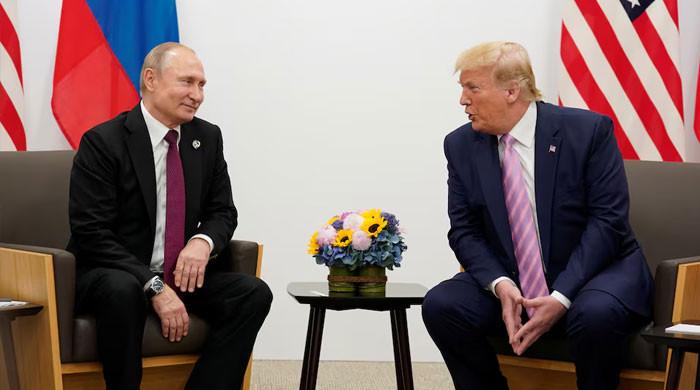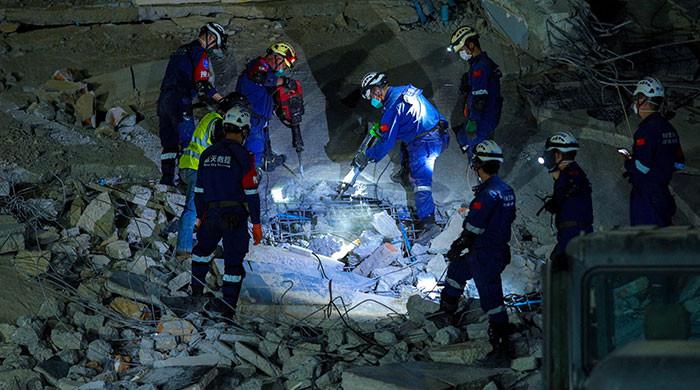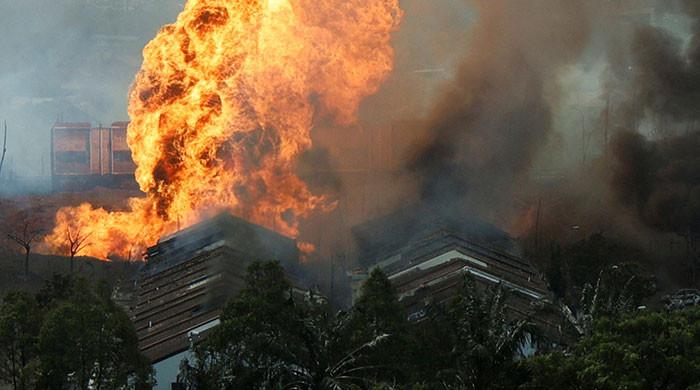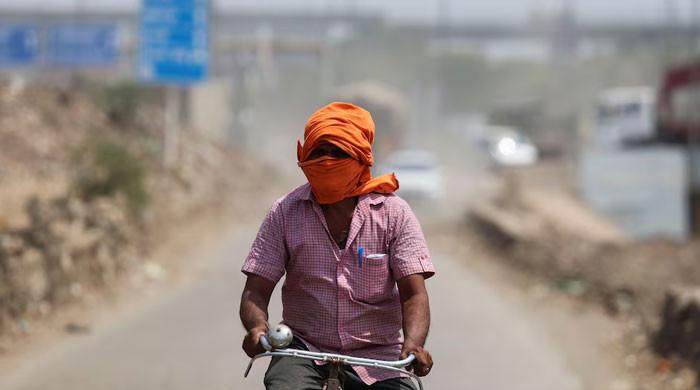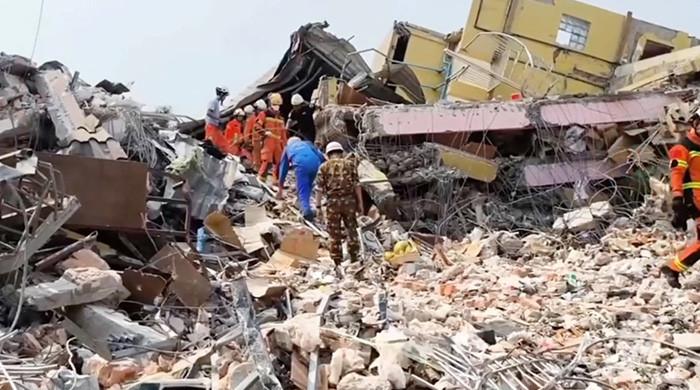UK’s Sunak pledges to stop cross-Channel migrants
Over 45,000 migrants arrived on the shores of southeast England on small boats last year
March 08, 2023
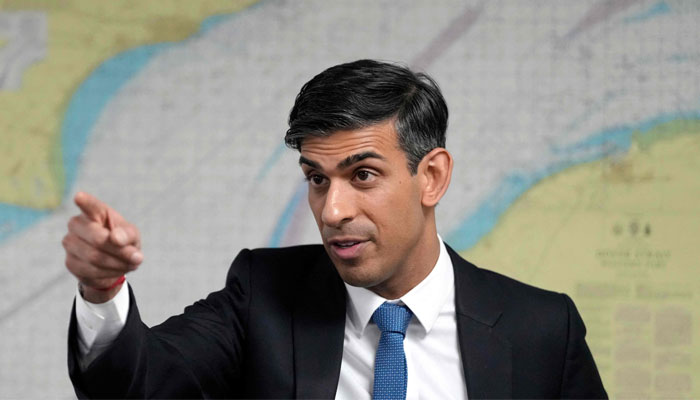
LONDON: British Prime Minister Rishi Sunak on Tuesday vowed to remove illegal migrants within weeks under a controversial new plan to stop people crossing the Channel illegally on small boats.
Sunak was speaking after his Conservative government unveiled its proposals, which it acknowledged were stretching international law amid an outcry from rights campaigners.
More than 45,000 migrants arrived on the shores of southeast England on small boats last year - a 60% annual increase on a perilous route that has grown in popularity every year since 2018.
Under the draft law, which will be retrospective to Tuesday, anyone arriving illegally in the UK will not be able to claim asylum, Sunak told a news conference.
"If you come here illegally, you can’t claim asylum. You can’t benefit from our modern slavery protections. You can’t make spurious human rights claims and you can’t stay," he said.
"We will detain those who come here illegally and then remove them in weeks, either to their own country if it is safe to do so. Or to a Safe Third Country like Rwanda and once you are removed, you will be banned as you are in America and Australia from ever re-entering our country."
Sunak earlier Tuesday pledged in The Sun newspaper to "take back control of our borders once and for all", reprising a popular pledge from campaigners like him who backed Britain’s Brexit divorce from the European Union (EU).
Under the draft law, interior minister Suella Braverman will be given a new legal duty to deport all migrants entering illegally, such as across the Channel, trumping their other rights in the UK and European human rights law.
"The current situation is neither moral nor sustainable. It cannot go on," Sunak added.
"And it’s devastatingly unfair on those who most need our help, but can’t get it as our asylum system is being overwhelmed by those travelling illegally across the channel," he said.
Right-winger Braverman said in parliament she was "confident that this bill is compatible with international obligations" - despite conceding in an overnight Daily Telegraph article that it "pushed the boundaries of international law".
Running for their lives
Rights groups and opposition parties say the plan is unworkable and unfairly scapegoats vulnerable refugees.
Christina Marriott, executive director of strategy for the British Red Cross, said the UK would be in breach of international asylum conventions.
"We wonder if you are fleeing persecution or war if you are running from Afghanistan or Syria and are in fear of your life, how are you going to be able to claim asylum in the UK?" she told Sky News.
Steve Valdez-Symonds of Amnesty International said it was "chilling to see ministers trying to remove human rights protections for groups of people whom they’ve chosen to scapegoat for their own failures".
"People fleeing persecution and conflict will be irreparably harmed by these proposals," he said in a statement.
The UNHCR, the UN refugee agency, said the plans would amount to an asylum ban, and urged "more humane" solutions instead.
Nearly 3,000 have arrived by boat so far this year, often ending up in expensive hotels at taxpayer expense and the backlog of asylum claims now exceeds 160,000.
The new plan would transfer illegal migrants to disused military barracks temporarily and cap the annual number of refugees settled via safe and legal routes.
Gangster profits
The government, which is trailing in opinion polls, has been striving for years to get a grip on the issue.
It had hoped the threat of a one-way ticket to Rwanda, where migrants would remain if accepted for asylum, would deter the cross-Channel journeys.
But that plan, announced by former Prime Minister Boris Johnson last year, was blocked at the last minute by the European Court of Human Rights (ECHR), which is separate from the EU.
It was then upheld by Britain’s High Court but remains mired in appeals. No flights to Rwanda have yet taken place.
Reports on Tuesday said the government could withdraw from the ECHR if the Strasbourg-based court again intervenes in its latest legislation, following what Braverman called its "opaque" ruling on Rwanda.
Sunak added that illegal migration was a "shared challenge" with European allies and that countries across the continent were looking at new laws and measures to tackle it.
He said a recent deal with the French had seen increased patrols on beaches and "significant and better cooperation and collaboration between our teams".




